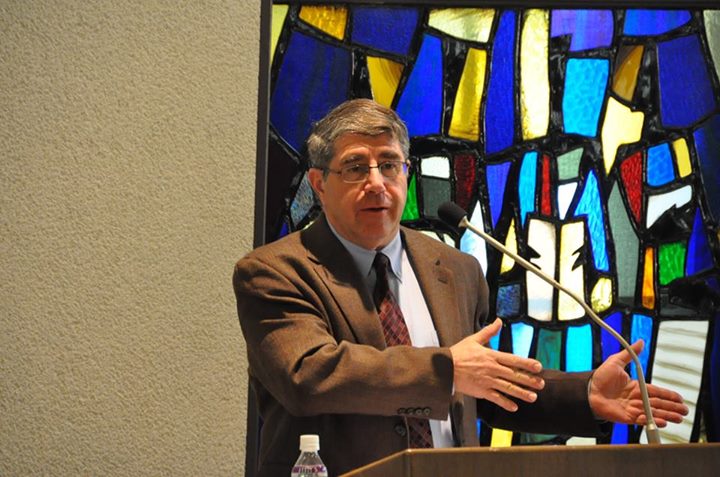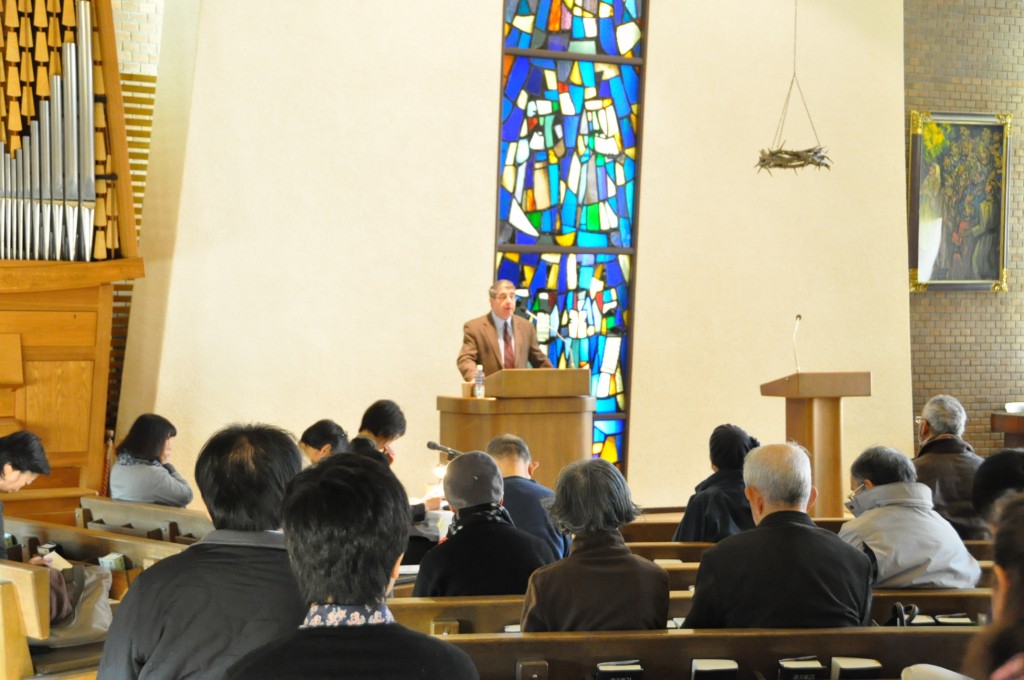Center for Interdisciplinary Study of Monotheistic Religions(CISMOR)Doshisha University
> Public Lectures > What is Jewish Philosophy? The Medieval PerspectivePublic Lectures
What is Jewish Philosophy? The Medieval Perspective
| Date: |
2015/12/20 13:00-15:00 |
|---|---|
| Place: | Divinity Hall Chapel, Imadegawa Campus, Doshisha University |
| Lecture: | Josef Stern (Professor in the Department of Philosophy at the University of Chicago) |
| Summary: | |
|
Utilizing a question-and-answer format, Dr. Stern responded to the question of "what is Jewish philosophy?" by explaining what Jewish philosophy is not: it does not refer to philosophy that was created in the Hebrew language. Philo of Alexandria wrote in Greek, and Maimonides, who was active in the Islamic cultural sphere, wrote in Judeo-Arabic (Arabic written in the Hebrew alphabet). This also does not mean that philosophers of Jewish origin are Jewish philosophers. Abner of Burgos and others converted to Christianity. Despite the fact that he became a bishop, he considered himself to be a Jewish philosopher. Furthermore, medieval Jewish philosophy cannot be defined by a particular school or a specific style. There were philosophers who belonged to schools such as Aristotelianism, Neoplatonism, and mysticism. We can regard Jewish philosophy as the philosophy of Judaism, that is, the philosophical foundation of what we know today as Judaism. It is the process of exposing inaccurate beliefs using accurate terms to express what Judaism claims, explaining the grounds for the beliefs, and strengthening the truth. However, because medieval Jewish philosophy included metaphysics, epistemology, and moral philosophy, in addition to natural science, what we call Jewish philosophy cannot be limited to religious and theological issues. There were two roads through which early medieval Judaism came into contact with philosophical speculation. The first road was through “Kalam.” The literal meaning of Kalam is "speech," "word," "discussion," or "argument." During the 9th and 10th centuries CE, the Mu'tazili School best represented the spirit of Kalam. They attempted to systematically explain the mandatory faith required by the Quran through reason and to justify Islam through argumentation. This Kalamic thought influenced the Jewish thinker Saadia Gaon. He understood revelations in Judaism through reason and attempted to substantiate these revelations. He believed that if the Bible conflicted with reason and science, reason was superior to the Bible. He prized reason, but did not regard himself as a commentator in the Aristotelian and Greek traditions. The second road through which Judaism encountered philosophy was through philosophy in the broad sense, that is, "Falsafa." During the 9th to 10th centuries, works of Greek philosophy and science were translated into Arabic, and the process of adding commentaries in the Aristotelian and Greek traditions continued. Thinkers who were connected with this movement were prominent Islamic philosophers, such as Al-Farabi, Avicenna, and Averroes, in addition to the Jewish thinker Maimonides. Two opposing authorities can be seen in the thoughts of Maimonides. The first was the oral tradition of the Torah, and the other was the Aristotelian corpus. This was also a conflict about the completion of two different human beings. The first is Pietism, that is, completion that is achieved through the practice of precepts. The second is the completion of humans based on reason, that is, completion that can be achieved through science and knowledge. This was also a conflict between the transcendent God and the personal God. The transcendent God is a god that exists as the inevitable cause of the movement and existence of the eternal universe. By contrast, the personal God is a god that is described as having a will, body, and emotions; He created the world from nothing, intervenes in history, and can miraculously change the natural world. What makes it possible to group the various medieval Jewish philosophers into the single category of Jewish philosophy is their shared discourse. They shared the same premises and vocabulary in their field of discourse and lived in the same intellectual space. Their activity evolved into the field of hermeneutics to philosophically interpret the Bible. This can be regarded as one of the important contributions that medieval Jewish philosophy has made to philosophy in general. Kotaro Hiraoka Postdoctral Fellow, CISMOR |
|
|
*Lecture in English, interpretation will be provided. *Admission Free, No Reservation Necessary Organizer: CISMOR Co-organizer: Kyoto Association of Jewish Thought / School of Theology, Doshisha University |
|

